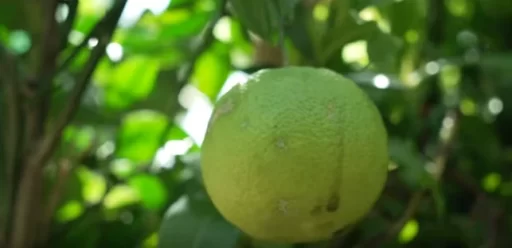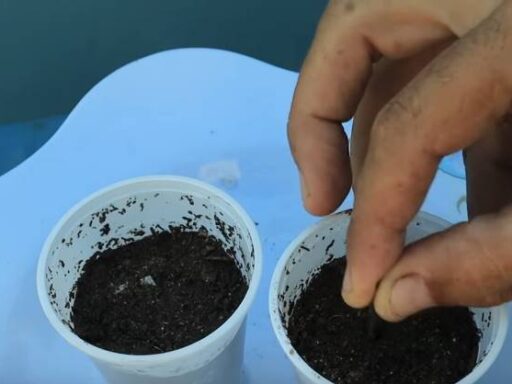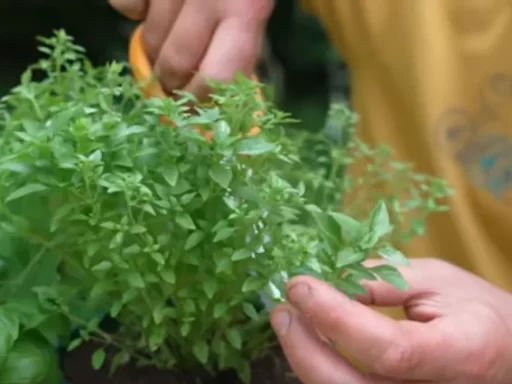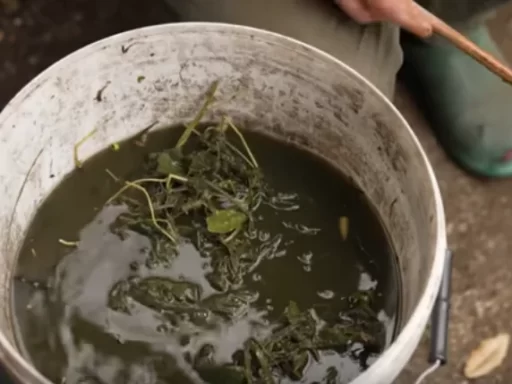Citrus plants are a delightful addition to any garden, offering fragrant blossoms, vibrant fruit, and a lush appearance year-round. Whether you’re growing lemons, oranges, or other citrus varieties, they can be grown successfully in a variety of climates. This guide provides essential tips for starting your own citrus collection, whether you live in a cooler or warmer region.
The Best Citrus for Cooler Climates
For those living in cooler climates, lemons are the ideal starting point. Lemons are not only beautifully fragrant, but they are also more resilient to lower temperatures compared to other citrus varieties. For example, the lemon tree can withstand temperatures as low as -5°C to -6°C, making it a great choice for those without consistent warmth.
In cooler regions, it’s recommended to keep your citrus undercover during most of the year, ideally in a greenhouse or indoors. However, during the summer, place your citrus plants outside in a sunny location such as a patio or terrace to maximize their growth.
Potting and Repotting Citrus
When potting a citrus plant, it’s crucial to choose the right container and growing medium. Typically, a soil-based potting mix works best as it provides a stable environment for long-term growth. For those growing citrus in pots, mixing in 20% gravel improves drainage, ensuring your plant thrives in its container without waterlogging. Repotting is typically done in spring, but if your plant becomes root-bound, feel free to repot it whenever necessary.
Growing Citrus in Warmer Climates
In warmer climates, the sky is the limit. Citrus plants will thrive when planted directly in the ground, where they have ample space to expand their roots. The natural soil and sunlight in these regions provide all the elements citrus needs to flourish. Citrus planted outdoors requires less hands-on care when it comes to watering and feeding compared to those in containers.
Watering Citrus Plants
Citrus plants require frequent watering, especially during dry summer months. In containers, they dry out more quickly, so make sure to monitor the soil’s moisture. However, be cautious not to overwater—especially in the winter months when they require less water. It’s best to let the soil dry out between waterings to avoid shocking the plant or promoting root rot.
Rainwater is preferred for citrus, but if using tap water, let it sit to reach room temperature before watering. Always ensure that excess water can drain out, as citrus trees do not tolerate being waterlogged.
Feeding Citrus for Optimal Growth
Citrus plants are evergreen, meaning they need nutrients throughout the year. A lack of proper nutrients will result in yellowing leaves, poor growth, and reduced fruit production.
Nutrient Needs in Ground-Planted Citrus
If your citrus plants are planted directly in the ground, mulching once a year with compost is ideal. Follow this up with regular applications of a balanced organic fertilizer to promote healthy fruit and leaf production.
Nutrient Needs in Potted Citrus
For potted citrus plants, a summer citrus feed, which is higher in nitrogen, is necessary from mid-spring to mid-autumn to support new growth. During the winter, switch to a balanced winter feed, which helps with flower and fruit development. This feeding regimen ensures that your citrus stays healthy and productive, even through colder months.
Maintaining Citrus Throughout the Year
In addition to regular watering and feeding, citrus plants benefit from a little extra care when growing indoors or in greenhouses. For indoor plants, providing additional humidity through a tray of pebbles or a light misting will help them thrive. Greenhouse-grown plants typically have enough humidity, but monitoring is key to avoid overwatering.
Pollination and Fruiting
Citrus plants, especially lemons, can flower and bear fruit year-round. In cooler climates, flowers and fruits are more likely to appear during the warmer months, but don’t be surprised if you get flowers in the winter. For plants growing indoors, you might need to hand-pollinate using a brush to move pollen from flower to flower.
Common Citrus Problems and Solutions
While citrus trees are relatively easy to grow, they are susceptible to pests like mealy bugs and aphids. Mealy bugs are particularly troublesome due to their tough outer shells, making traditional insecticides ineffective.
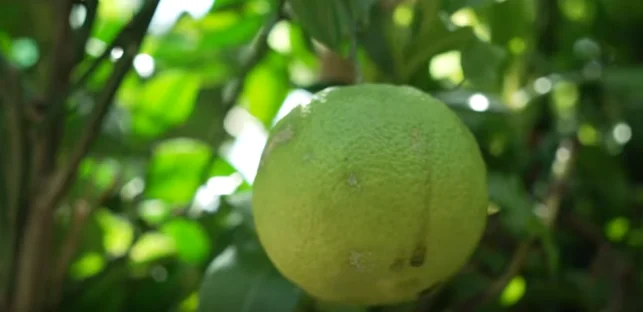
One natural solution is Castile soap, which can be mixed with water (15ml per liter) and sprayed directly on affected areas. This gentle soap will not harm the plant and serves as an effective, organic insecticide.
Additionally, it’s important to monitor moisture levels in the soil to prevent overwatering. Overwatering is one of the most common reasons citrus trees fail, so using a moisture meter can be an effective tool for keeping your plants healthy.
The Health Benefits of Citrus
Citrus fruits, such as oranges and lemons, are known for their high vitamin C content, offering numerous health benefits. A common saying goes, “An orange a day keeps the doctor away,” highlighting the positive impact citrus can have on your health. Whether eaten fresh, juiced, or used in cooking, citrus fruits are a valuable addition to any diet.
Citrus Trees: A Long-Term Investment
Growing citrus is not only rewarding for their delicious fruit, but these trees can also live for decades if properly cared for. Once established, your trees will yield fruit year after year, providing a steady supply of organic, homegrown lemons, oranges, and other citrus varieties.
Frequently Asked Questions
1. What is the best citrus tree for beginners?
Lemons are considered the best citrus tree for beginners due to their hardiness and ability to grow both indoors and outdoors.
2. How often should I water my citrus tree?
Water citrus trees regularly during the summer, ensuring the soil stays moist but not waterlogged. In winter, reduce watering and allow the soil to dry out between waterings.
3. Can I grow citrus trees indoors?
Yes, citrus trees, particularly lemons, can grow indoors if provided with plenty of light. A sunny window or conservatory is ideal.
4. What kind of fertilizer should I use for citrus trees?
Use a high-nitrogen citrus feed during the summer and a balanced feed during the winter to support both leafy growth and fruit development.
5. How do I prevent pests like mealy bugs on my citrus plants?
Using Castile soap mixed with water as a spray is an effective, organic method for controlling pests like mealy bugs.
6. Can I grow citrus in a colder climate?
Yes, you can grow citrus in colder climates by keeping them in pots and bringing them indoors during the winter months.
7. How long does it take for citrus trees to produce fruit?
Citrus trees typically start producing fruit within 2 to 3 years of planting, but this can vary depending on the variety and growing conditions.

